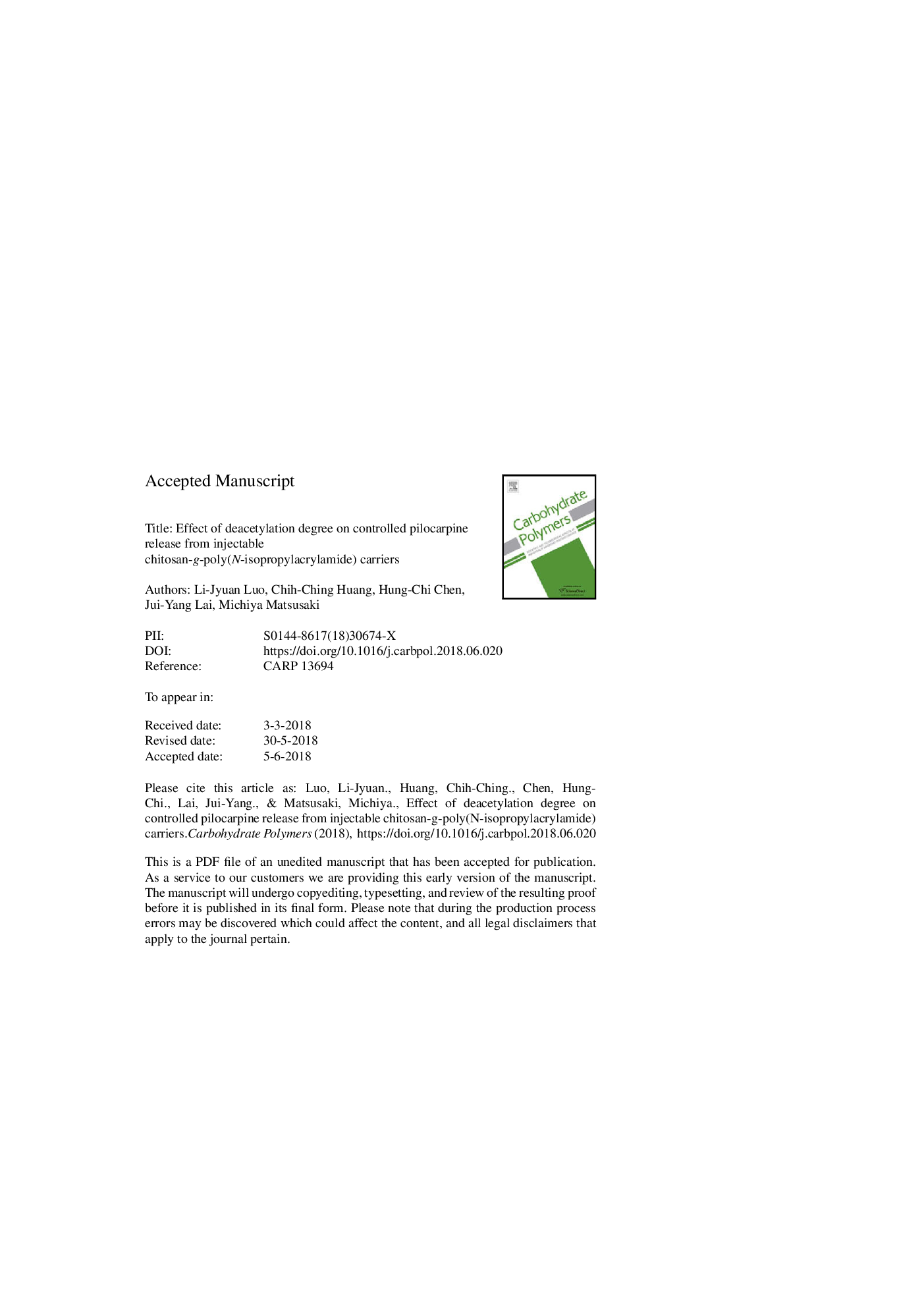| Article ID | Journal | Published Year | Pages | File Type |
|---|---|---|---|---|
| 7781807 | Carbohydrate Polymers | 2018 | 41 Pages |
Abstract
Development of biodegradable thermogels as intracameral injectable carriers for ocular delivery of antiglaucoma medications can provide a better treatment modality with low dosing frequency than eye drop formulations. For the first time, this study investigates the effect of deacetylation degree (DD) of the polysaccharide component in chitosan-g-poly(N-isopropylacrylamide) (CN) carriers on controlled release of pilocarpine in the management of glaucoma. Our results showed that increasing the chitosan DD from 60.7% to 98.5% leads to enhanced biodegradation resistance of carrier and prolonged release profile of the drug. Significant DNA damage and caspase-3 activation could be detected in lens epithelial cell cultures exposed to CN made from highly deacetylated polysaccharides, indicating apoptosis-related cytotoxicity due to relatively high positive charge density of the graft copolymers. Postoperative outcomes demonstrated that long-term therapeutic efficacy in glaucomatous rabbits is governed by intraocular pressure changes in response to intracamerally administered pilocarpine-loaded CN, strongly suggesting the usefulness of deacetylation in this injectable drug delivery carrier.
Keywords
Related Topics
Physical Sciences and Engineering
Chemistry
Organic Chemistry
Authors
Li-Jyuan Luo, Chih-Ching Huang, Hung-Chi Chen, Jui-Yang Lai, Michiya Matsusaki,
